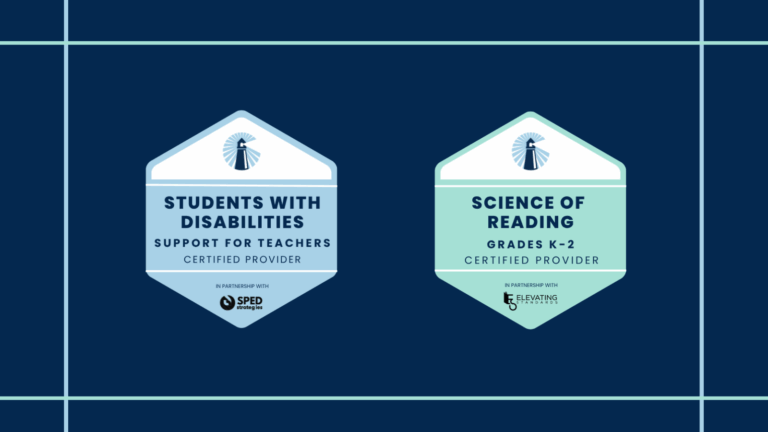
APPLICATION RUBRIC
The Professional Learning Partner Guide (PLPG) is a searchable database that states and school systems can use to find an external vendor that provides curriculum-based professional learning on high-quality instructional materials (HQIM).
Applicants undergo a rigorous, three-step application process evaluating their content and/or HQIM expertise, professional learning and training materials, and ongoing processes to improve their services. Professional learning providers that meet these criteria are profiled in the PLPG. For more information about the PLPG evaluation process, explore each gateway below.
GATEWAY 1: CONTENT + HQIM EXPERTISE
Evaluates providers’ expertise in high-quality instructional materials and content area expertise. Providers are evaluated on the extent to which they have expertise in any HQIM or content area.
GATEWAY 2: QUALITY OF PROFESSIONAL LEARNING DESIGN
Evaluates the quality of providers’ services by the type of CBPL they provide—adoption, initial implementation, ongoing support for teachers, and ongoing support for leaders.
GATEWAY 3: USING DATA TO PLAN AND IMPROVE
Evaluates how providers collect and use data to plan for, evaluate, and improve their services.
Badges
Professional Learning Partner Guide Badges highlight specialized areas of expertise beyond the core certification process (Gateways 1, 2, and 3). To explore available badges and review the rubrics used to determine eligibility, visit the Badges page.

FREQUENTLY ASKED QUESTIONS
Launched in August 2020, the Professional Learning Partner Guide (PLPG) provides school systems with a searchable database of national and local professional learning providers that have the expertise to support the adoption and implementation of high-quality instructional materials (HQIM).
Rivet defines HQIM in ELA, Math, and science as those rated “Meets Expectations” on EdReports in all grade levels for their grade band. Rivet also defines HQIM in science as those that are rated “High-Quality NGSS Design” or “High-Quality NGSS Design if Improved” on the EQuIP rubric and have at least two units per grade band.
Professional learning (PL) providers that successfully pass the three gateways below will be featured in the PLPG.
Gateway 1: Content and HQIM expertise*
Providers are evaluated on the extent to which they have expertise in any HQIM (for launch, ongoing PL for teachers, and/or systems design and support services) or content area (adoption services only).
Gateway 2: Quality of professional learning design
Providers are evaluated on the quality of their services by type—adoption PL, launch PL, ongoing PL for teachers, and system design and leadership support.
Gateway 3: Using data to plan and improve
Providers are evaluated on how they collect and use data to plan for, evaluate, and improve their services.
Step 1: Create an account in the PLPG portal.
Step 2: Submit a Letter of Interest by the due date in the Portal.
Step 3: Attend an informational webinar about Gateway 1
Step 4: Submit Gateway 1 templates (required)
Step 5: Attend an information webinar about Gateways 2 & 3 (Gateway 1 passers only)
Step 6: Submit Gateway 2 and Gateway 3 materials (required)
Step 7: If accepted into the PLPG, complete PLPG profile prior to launch day (required)
We evaluate professional learning that is grounded in high-quality curriculum (green) as defined by Ed Reports. To see a current list of curriculum you may apply for in the PLPG, visit Ed Reports or view the approved curricula in the drop down list in the Gateway 1 application in the PLPG applicant portal.
Rivet Education has two application deadlines each year—one in the late summer and one in late winter—to ensure educators have access to up-to-date information about the PL marketplace. The next review cycle opens in early September 2025. You may see an overview of the cycle by clicking here. Please see the Applicant portal for full dates.
For questions about the application process, email us at info@riveteducation.org.
- In order to pass a professional learning type, applicants must achieve a score equivalent to at least 70% on both overarching indicators and type-specific indicators.
- Each item is scored on a 3-point scale. Scores are determined as follows :
- Score of 2: The evidence provided meets the indicator and is high quality.
- Score of 1: All full-point criteria are present but quality is low, OR only one of the full-point criteria is present and quality is low.
- Score of 0: None of the criteria are present, OR ALL examples that are present are not high quality.
PL partners are certified for three years. At the end of that period, providers must submit a renewal application to remain in the PLPG.
All providers approved for the PLPG must submit (1) a signed indemnity form and (2) information for their profile in the PLPG. All profile questions are informational only, with the expectation of the HQIM and types of CBPL each provider is approved for during the application process.
Once the indemnity form and profile submission are received, a provider’s profile will be available in the PLPG on the next release date.
Rivet Education, LLC (“Rivet”) provides this Professional Learning Partner Guide “Guide” for general information purposes only. All information contained in this Guide is provided in good faith, however Rivet neither guarantees nor makes any representations or warranties as to the accuracy or completeness of the information contained in this Guide. Rivet evaluates third-party providers based on information that is self-reported, including assurances from third-party providers that they have all necessary rights and permissions to provide their services. Rivet does not evaluate, and makes no
representations with respect to, whether the services of professional learning providers violate the copyright or other intellectual property rights of the authors or publishers of curriculum materials. Unless specifically indicated, Rivet makes no claim that a publisher authorizes, approves, sponsors, or endorses any professional learning provider. Rivet does not claim responsibility for any actions taken by any third-party service provider listed in this Guide, including by way of example and not limitation, any infringement of the intellectual property rights of others.
The term “partner” is used throughout this Guide to describe a relationship between education agencies and the providers of professional learning services and does not create or imply a joint venture, partnership, affiliation, or other relationship between Rivet and any other party, or among any parties identified in this Guide.
All product and company names used in this Guide are trademarks or registered trademarks of their respective holders. Use of company or product names does not imply any affiliation with or endorsement by the owners of those marks. Solely for convenience and informational purposes, this Guide contains hyperlinks to external websites and services that are not under the control of Rivet. Links to external websites do not constitute endorsement of these sites or their contents by Rivet. Rivet does not control or guarantee the currency, accuracy, or completeness of information found on linked, external
sites. You use hyperlinks to access external websites at your own risk and your use of linked, external websites is subject to the terms of use, privacy, and security policies of those external websites.
You are responsible for conducting your own reasonable investigation and evaluation before retaining the services of any third-party service providers. Reproduction, distribution, republication, and/or re-transmission of any of the material contained within this Guide are strictly prohibited without the prior written permission of Rivet.
To the fullest extent permissible under applicable law, the Guide is provided in an “As Is” and “As Available” and “As Available” basis. Rivet expressly disclaims all warranties of any kind, whether expressed or implied, or statutory, including but not limited to the implied warranties of merchantability, fitness for a particular purpose and non-infringement. Rivet
does not warrant that this Guide is error free, will operate without interruptions, is free of viruses or other harmful components, or will otherwise meet your needs.
Under no circumstances will Rivet or its employees, contractors, or agents be liable for any direct, indirect, incidental, special, punitive, or consequential damages which may result in any way from your use of information included in this Guide or your use of any of the services of third-party service providers listed in this Guide.
glossary
As you review the different gateways, any verbiage with an asterisk (*) indicates that it is included in the glossary.
The progression of units or learning over time
Rivet Education defines facilitator as anyone who leads professional learning for your organization as a coach, consultant, or presenter.
Guskey’s Levels of Professional Development Evaluation
- Participants’ reactions
- Participants’ learning
- Organization support and change
- Participants’ use of new knowledge and skills
- Student learning outcomes
High-Quality Instructional Materials
The Shifts provide a frame that describes how academic standards raise expectations across multiple areas of students’ educational experience including instructional materials, classroom practice, and assessment.
Adapting materials to the needs of you and your students, while also respecting the philosophy and intent of the curriculum.
- Adoption-Professional learning designed for adoption supports schools and districts with developing and executing a plan for HQIM selection.
- Initial Implementation-Professional learning that equips teachers and leaders with their initial understanding of the HQIM and prepares them to implement it with integrity. This type of professional learning takes place in the weeks leading up to the start of a new school year and may continue through the first weeks of school.
- Ongoing Implementation Support for Teachers-Professional learning that is ongoing for teachers deepens teachers’ initial understanding of how to implement the HQIM by providing opportunities for teachers to reflect on their practice and plan for upcoming instruction using the HQIM.
- Ongoing Implementation Support for Leaders-Professional learning that focuses on System Design and Leadership Support supports school and district leaders in identifying and implementing the enabling conditions and resources required for a successful implementation of the HQIM.
- At Rivet Education, we believe that an excellent and equitable vision of instruction should:
- Support educators with believing in and maintaining high expectations for each and every student.
- Provide each and every student with access to rigorous, relevant, grade-level instruction and prioritizes students engaging with content-specific standards, practices, and shifts.
- Empower students to take ownership of their learning.
- Be inclusive and responsive to students’ needs.
- Affirm and further develops students’ racial, ethnic, and linguistic identities.

